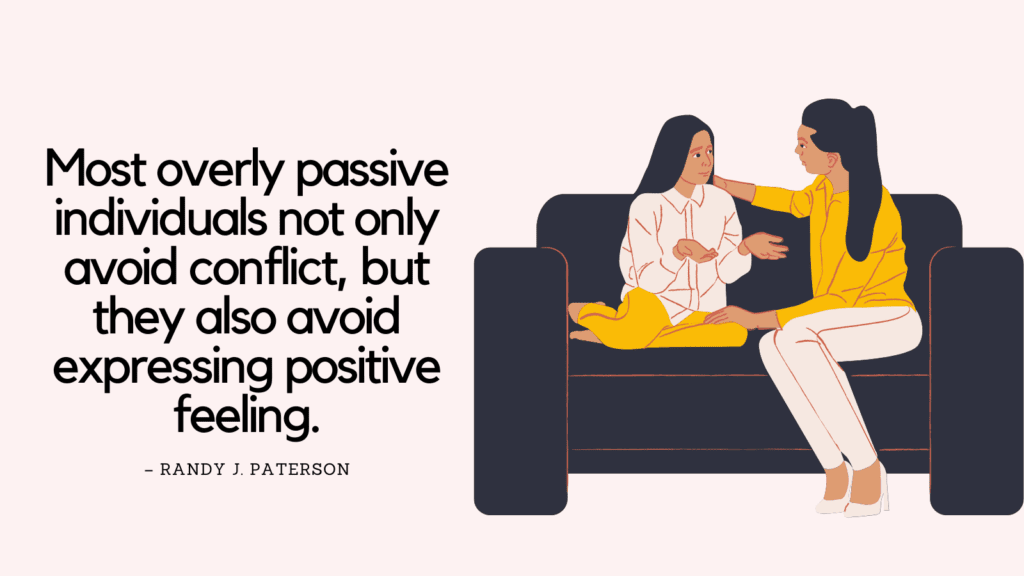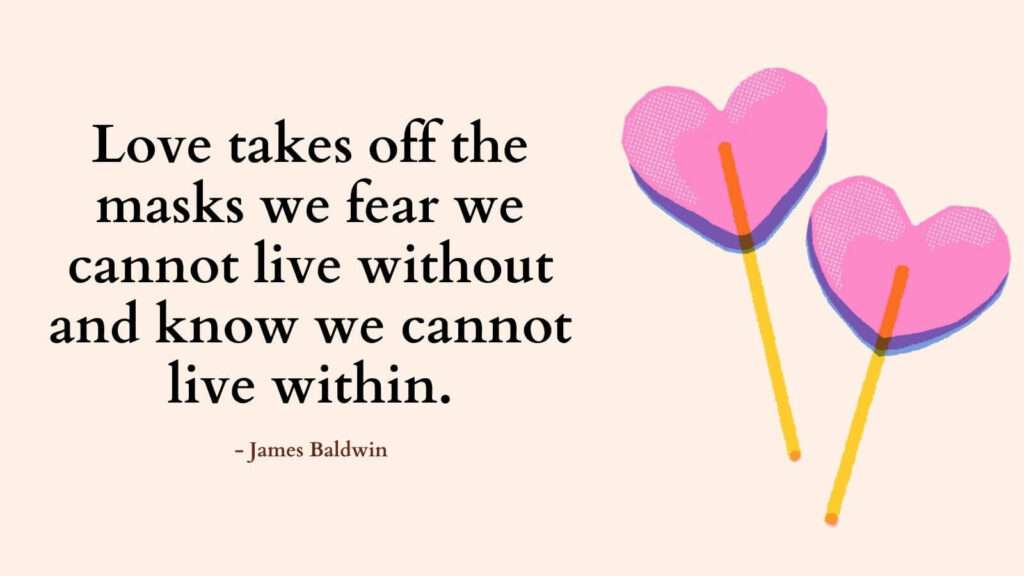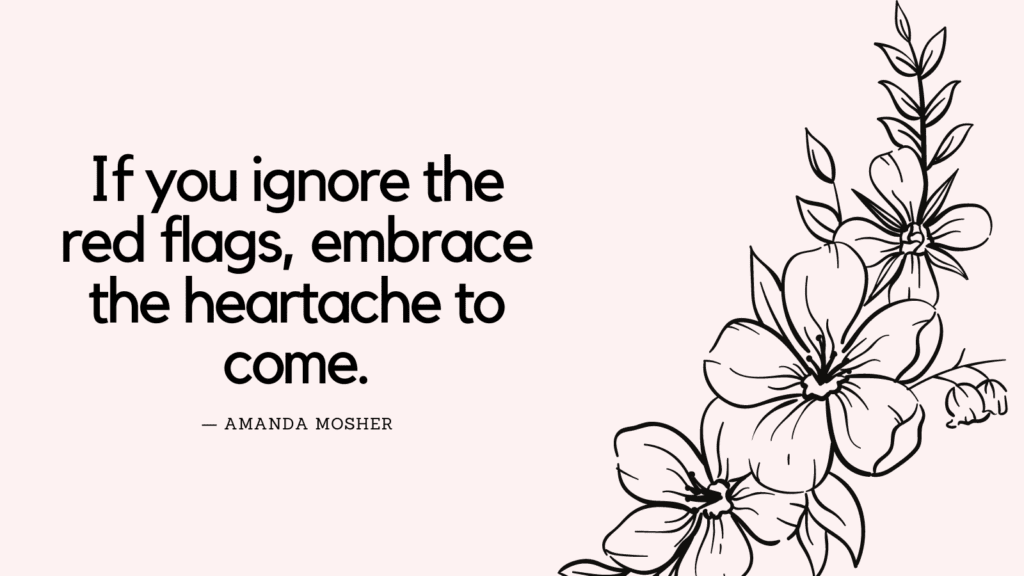This post contains some of the best lack of communication quotes and sayings.
Lack Of Communication Quotes And Sayings
1. “Lack of communication or frequent exposure to poor communication diminishes one’s selfhood both emotionally and physically. Many believe that mental illness is primarily a problem of inadequate communication.” – Robert Bolton
2. “The lack of communication is often toxic and can be lethal.” – Robert Bolton
3. “Passive avoidance or hostile aggression may remain tempting in the short term, but assertiveness will usually pay off in the long run.” – Randy J. Paterson
4. “The passive style is designed to avoid conflict at all costs.” – Randy J. Paterson
Related: How To Become A Stronger Empath? Top 20 Actionable Empathy Exercises to Become More Empathetic
5. “When we use the passive style, we behave in much the same way as submissive wolves do. We may avoid eye contact, appear nervous, look downward, and make ourselves small. We can think of the passive style as a posture of submission to others.” – Randy J. Paterson
6. “We can always choose whether or not to behave in a passive way. But often we’re not aware that there is a choice. We skip past the fork in the road without even realizing there were other options. And when we behave passively, we can feel helpless, as though we were not in charge of our own lives. This is because passive behavior usually results from a belief that we’re not allowed to behave in any other way.” – Randy J. Paterson

7. “Miscommunication is the key for heartbreaks.” – Unknown
8. “If the passive style is your default, you may not take the initiative required to express positive feelings. You may also believe that others wouldn’t really care what you think anyway.” – Randy J. Paterson
Related: Top 19 Emotional Intelligence Activities (To Improve Low Emotional Intelligence)
9. “Passivity prioritizes being agreeable, evading conflict, and deferring to the will of others. Inevitably, this means going along when people make requests. It doesn’t matter how unreasonable they may be. Ultimately, it’s impossible to do this and still have a life of your own.” – Randy J. Paterson
10. “A lack of communication leaves fear and doubt.” – Kellan Lutz
11. “Communication works for those who work at it.” – John Powell
12. “Lack of communication will destroy a relationship.” – Sayam Asjad
13. “It is not distance that keeps people apart but lack of communication.” – Unknown
14. “A relationship without communication is just two people.” – Unknown
Related: Do’s And Don’ts Of Effective Communication
15. “Lots of people make requests in an overly passive way. They feel they don’t have the right to ask for things.” – Randy J. Paterson
16. “Lack of communication ruins everything because instead of knowing how the other person is feeling, we just assume.” – Unknown
17. “Without communication, there is no relationship. Without respect, there is no love. Without trust, there’s no reason to continue.” – Unknown
18. “A lack of communication breeds assumptions of what the other is thinking or feeling; and assumptions are, more often than not incorrect.” – Unknown
19. “Without good communication, a relationship is merely a hollow vessel carrying you along a frustrating journey fraught with the perils of confusion, projection, and misunderstanding.” – Cherie Carter-Scott
Related: How To Validate Someone’s Feelings Without Agreeing? (+Examples of Validating Statements)
20. “I believe life-alienating communication is rooted in views of human nature that have exerted their influence for several centuries. These views stress humans’ innate evil and deficiency, and a need for education to control our inherently undesirable nature. Such education often leaves us questioning whether there is something wrong with whatever feelings and needs we may be experiencing. We learn early to cut ourselves off from what’s going on within ourselves.” – Marshall B. Rosenberg
21. “For families, the toll is severe when members are unable to communicate emotions.” – Marshall B. Rosenberg

Causes of Lack of Communication
Lack of communication can stem from various factors. Here are some potential causes:
1. Poor listening skills: When individuals struggle to actively listen and understand others, it often leads to miscommunication and a breakdown in effective communication.
2. Different communication styles: People have diverse communication styles, such as being more direct or indirect, which can lead to misunderstandings if individuals do not adapt and understand each other’s preferred style.
3. Emotional barriers: Strong emotions like anger, fear, or mistrust can hinder effective communication. If individuals are unable to manage their emotions or express themselves clearly, it can impede communication.
4. Lack of clarity: Communication is ineffective when the message being conveyed is unclear, incomplete, or ambiguous. It is important to express thoughts and ideas with clarity to ensure understanding.
5. Cultural differences: Diverse cultural backgrounds can lead to differences in communication patterns, non-verbal cues, and expectation of personal space. These differences can sometimes create communication barriers if not acknowledged and understood.
6. Technology dependency: Over-reliance on technology-mediated communication, such as text messages or emails, can result in the loss of important non-verbal cues and nuances present in face-to-face interactions, leading to misunderstandings.
7. Time constraints: Busy schedules and time pressures can limit the opportunity for meaningful communication, resulting in rushed or incomplete exchanges that may lead to miscommunication.
Tips to Improve Communication
To improve communication, consider the following suggestions:
1. Enhance active listening skills: Practice focused and attentive listening, seeking to understand rather than just respond.
2. Encourage open dialogue: Foster an environment where individuals feel comfortable expressing their thoughts and ideas without fear of judgment or criticism.
3. Clarify and ask for clarification: When unclear about a message, ask for clarification to ensure understanding and avoid assumptions.
4. Develop empathy: Try to understand others’ perspectives and emotions, allowing for better communication and mutual understanding.
5. Adapt communication styles: Be flexible and adapt your communication style to match the preferences and needs of others.
6. Emphasize non-verbal cues: Pay attention to body language, facial expressions, and tone of voice to better comprehend the full message being conveyed.
7. Set aside dedicated time for communication: Prioritize meaningful conversations and allocate specific time for open discussions, allowing for more effective communication.
Remember, these suggestions may vary depending on individual situations.



